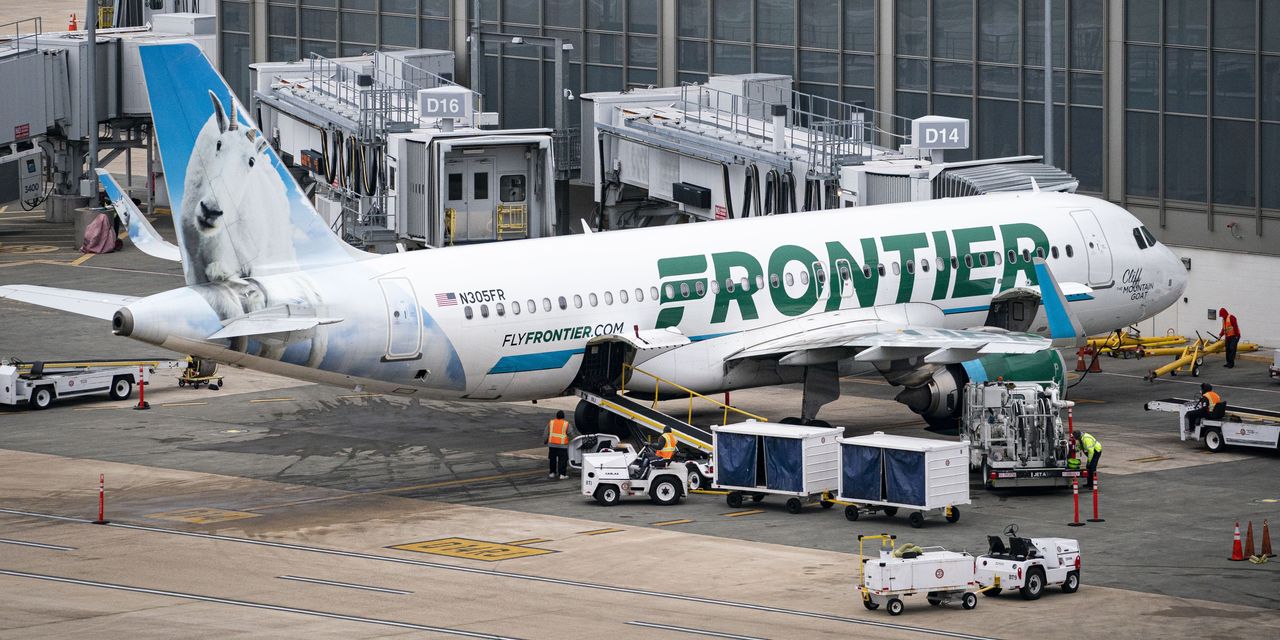
Even the most obvious corporate mergers may not fly in today’s antitrust climate.
On Monday, the top two ultralow-cost airlines in the U.S., Spirit Airlines SAVE 17.17% and Frontier Group Holdings, ULCC 3.47% said they are combining in a cash-and-stock deal. The merger would create the fifth-largest airline in the U.S. in terms of seats, data from Cirium’s Diio Mi show. Their fleets, together comprising more than 280 jets, would be extremely easy to combine since they are both made up of models from the Airbus A320 family.
These are very similar airlines, even when it comes to their history. Frontier’s owner, Indigo Partners, used to have a majority stake in Spirit, and was behind both companies’ transformation into modern no-frills operators.
Under the terms, Frontier shareholders would own approximately 52% of the combined company, while the owner of each Spirit share would receive 1.9 Frontier shares plus $2.13 in cash—thus valuing Spirit at a 19% premium of $25.83 per share, based on Friday’s closing prices. Adding the company’s debt brings Spirit’s valuation in the deal to $6.6 billion, which is less than six times Wall Street analysts’ median 2023 earnings forecast.
This is in line with the multiples at which Spirit was trading before Covid-19, which seems like a reasonable price given that short-haul tourism already is recovering from the pandemic and isn’t exposed to the existential threat facing international business travel. Higher oil prices could be a problem, but the companies also tout $500 million in annual operating cost savings, which should cover the takeover premium.
On the surface, there would seem to be competition concerns: Frontier flew to more than 80% of the airports where Spirit operated in 2021, according to Oliver Wyman’s PlaneStats. When individual routes are taken into account, however, the overlap falls below 40%, and in less than 2% of cases did the carriers compete fiercely for market share—mostly very seasonal routes like Cleveland to Cancún and Orlando, Fla., to Punta Cana.
Executives claim that the merger will actually lead to more price competition versus legacy airlines in underserved airports and, based on the data, they are probably correct. All told, this is such a straightforward merger that the aviation industry has speculated about it for years. After markets opened Monday, Spirit’s shares rose 17% to $25.46, and even Frontier’s gained slightly. It shows that investors believe the deal will go through and deliver on its promise.
But it will require the approval of the Transportation Department and, as the companies admitted Monday, that of the Justice Department. Here things get complicated, given the Biden administration’s new antitrust policy of blocking consolidation on grounds that go beyond pure consumer welfare. Right now, the Justice Department is blocking Lockheed Martin’s purchase of Aerojet Rocketdyne and is also trying to derail American Airlines Group’s domestic alliance with JetBlue Airways, which is designed to help the ailing American carry on competing in Northeastern markets where it had all but given up.
Everything is straightforward for Spirit and Frontier to travel together, yes. Everything except the shifting winds around Washington.
Write to Jon Sindreu at [email protected]
Copyright ©2022 Dow Jones & Company, Inc. All Rights Reserved. 87990cbe856818d5eddac44c7b1cdeb8
Appeared in the February 8, 2022, print edition as ‘Antitrust Spirit Makes Things Hard for New Frontier.’








